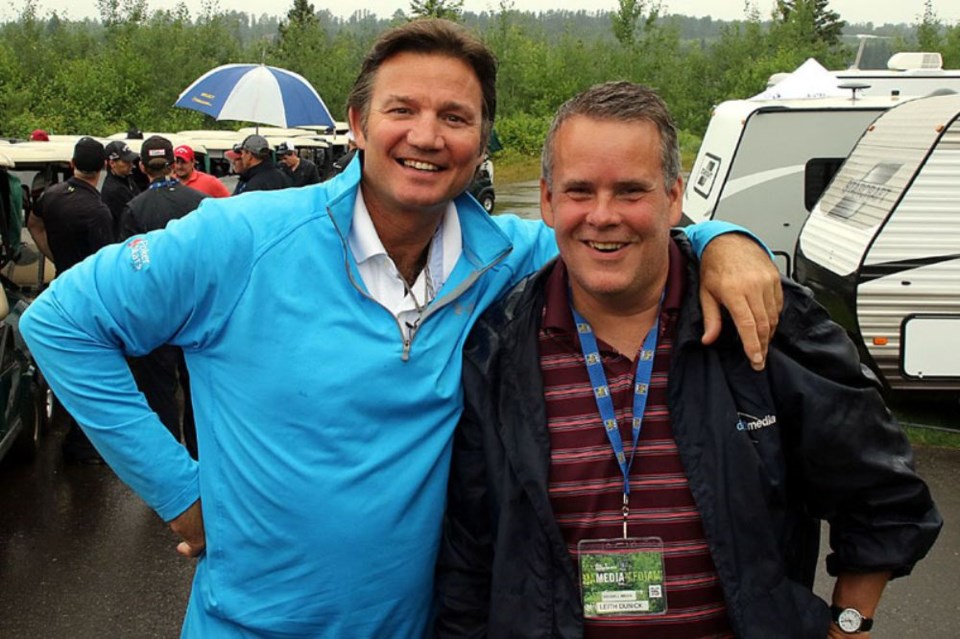Mike Krushelnyski says the media has gotten it all wrong for the past 27 years.
The former NHL forward, who won three Stanley Cups with the Edmonton Oilers in the 1980s, said earlier this week journalists have gotten the gist of the trade that sent the Wayne Gretzky to Los Angeles in 1988 mixed up.
No doubt the most famous trade in hockey history, the deal shipped the Great One south of the border with Krushelnyski and enforcer Marty McSorley.
In return the cash-strapped Oilers and their owner Peter Pocklington got forwards Jimmy Carson and Martin Gelinas, three first-round draft picks and $15 million.
“Gretz went for the five first-round draft picks,” said Krushelnyski, who joined other current and former NHLers at Whitewater Golf Club for the celebrity pro-am at the Staal Foundation Open, his memory a little fuzzy about the details of the deal nearly three decades after Pocklington pulled the trigger on Aug. 9, 1988.
“McSorley went for Gelinas. I was the guy who went for the $15 million.”
Clearly Krushelnyski has managed to retain a sense of humour about his role in the trade and isn’t afraid to poke a little fun at himself.
But the Montreal-born NHLer, who turned 55 in April, was a pretty good player in his own rights, sticking around long enough to score 241 goals in the golden age of offence, including a 43-goal campaign in 1984-85 with Gretzky and Jari Kurri at his side.
Then again, journeyman Dave Lumley once scored 32 goals as Gretzky’s right-hand man and even old cement hands himself, Dave Semenko, found double digits as the Great One’s main on-ice protector.
Krushelnyski, drafted by the Minnesota North Stars in the second round of the 1977 NHL Amateur Draft, as it was then known, joked he tried to leverage the 43-goal campaign into a better contract, but quickly found out Oilers general manager Glen Sather had other plans for him.
Acquired from Boston in 1984 after a pair of 20-goal campaigns, Sather decided Krushelnyski was better suited for a checking role and his production plummeted, scoring 52 goals over three seasons after his breakout year.
“They don’t pay back-checkers,” he said. “But roles change. I broke in the league and thought things were going well, but obviously Glen Sather had a plan in his mind, but it’s hard to argue with success. Even though I wish I could have scored those goals, but Glen had me doing another job and we continued to win. The guy knew what he was doing.”
The Staal Foundation Open continues through Sunday, with play getting under way on Thursday.



